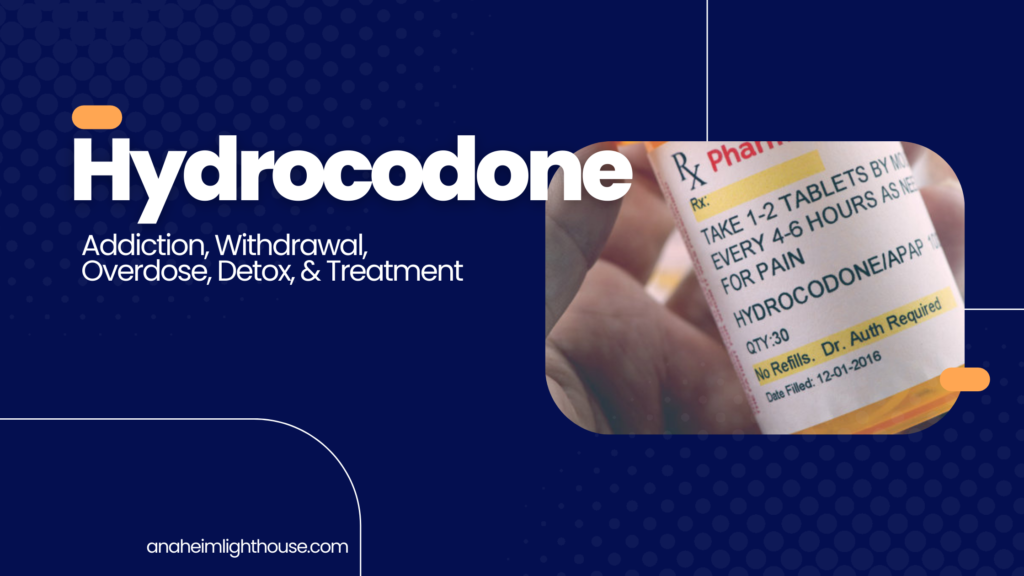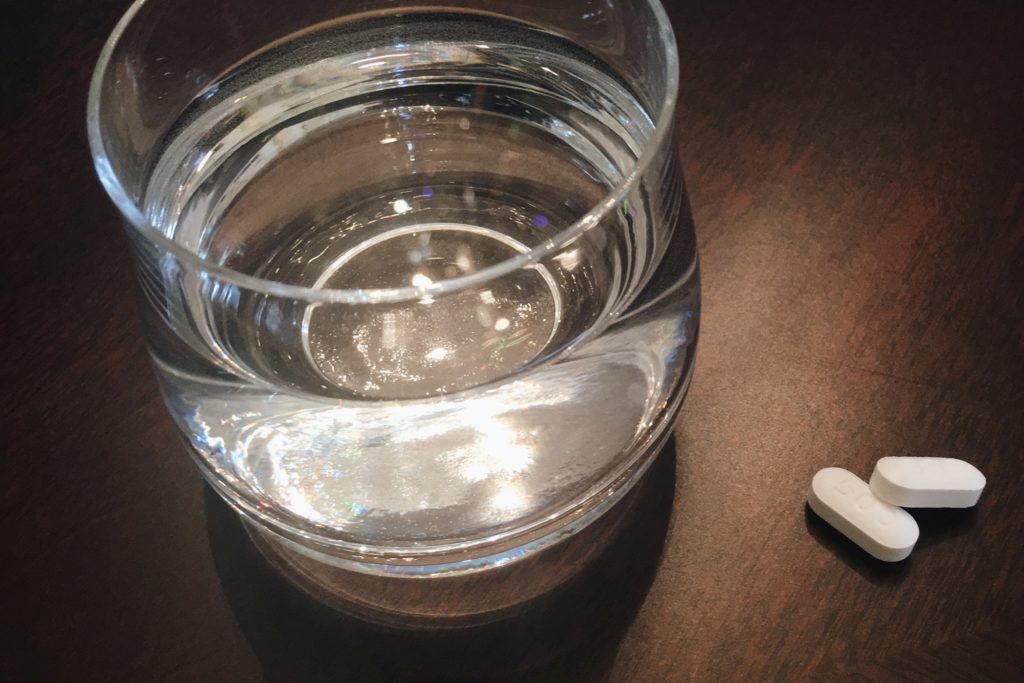Hydrocodone: Side Effects, Addiction, Overdose & Treatment
If you’re like most people, you probably think of Hydrocodone as an occasional pain reliever. After all, it’s one of the most commonly prescribed medications in the United States. But Hydrocodone is also a powerful opioid drug that can be addictive and dangerous if not used properly.
In this post, we’ll give you an overview of Hydrocodone addiction, withdrawal, overdose, and detox treatment options. We’ll also provide some resources to help you get started on your recovery journey. So if you’re curious about Hydrocodone and want to learn more, keep reading.
What Is Hydrocodone?
Hydrocodone is an analgesic pain-reliever that is commonly paired with Acetaminophen. These two drugs are also often mixed for enhanced pain relief action.
In terms of potency, this drug has comparable efficacy as morphine and codeine. It is the most popular opioid drug prescribed for patients in the United States.
This prescription drug is known by several street names which vary depending on the culture of the area. These names are made to hide the real identity of the drug when doing illegal transactions.
Some of the common street names for this drug are 357s, Watsons, Tabs, Idiot Pills, Norco, Scratch, Fluff, Lorris, Hydros, Vicos, Vics, and Vikes.
What Does Hydrocodone Look Like?
In terms of physical appearance, this drug is mostly available in table forms which are oval in shape and white in color.
Each strength of the drug has its specific pill imprint as its identifier. For instance, a 325 mg Hydrocodone Bitartrate has a pill imprint of “IP 110”.
What Is Hydrocodone Used For?
Hydrocodone is a medication that is most commonly used to suppress coughs and relieve medium to severe pain.
It is a narcotic analgesic, which means that it works by reducing the number of pain signals that are sent to the brain.
Hydrocodone can be prescribed either alone or in combination with other medications, such as acetaminophen.
How Does Hydrocodone Work?
This prescription drug works in the same way as the other opioid drugs. Once orally ingested, this drug mixes in the blood and targets the brain.
In the brain, it specifically attaches itself to the opioid receptors and prohibits the brain from receiving signals of pain sensations. Likewise, it also stimulates the secretion of dopamine in the brain to reinforce the pain-relieving action.
Dopamine is a brain chemical and hormone that contributes to the regulation of body movements, motivation, and mood. It is also called the “happy or glad-feeling hormone” in the body.
How Long Does Hydrocodone Stay in Your System?
If one plans to undergo a drug test, you’re probably wondering how long it stays in the body.
Typically, this substance has a half-life of four hours. For instance, a person orally takes 100 mg of hydrocodone, after four hours the amount of the substance becomes 50 mg or half of the original amount.
In the urine and saliva, a residue remains 2 to 4 days after the last intake. In the hair follicles, the presence of this drug remains 90 days after the last intake of the drug.
What are the Short and Long-term Effects of Hydrocodone?
Whether for medicinal or recreational purposes, the intake of this drug can lead to short and long-term effects.
The short-term effects associated with the use of this drug are similar to other opioid substances. Some of its short-term effects include depressed breathing, stomach pain, fainting, vomiting, and paralysis.
Meanwhile, if the abuse or use of this drug is continued for a longer duration, the side effects intensify and may lead to other serious health consequences.
Some of its common long-term side effects include joint and muscle inflammation, constipation, nausea, sweaty skin, low blood pressure, respiratory failure, and death.
Is Hydrocodone Addictive?
Despite its health benefits, this drug is considered dangerous because of its high addictive potential and ill effects when mixed with other drugs and illicit substances.
In terms of potency, it has 1/10 the strength of Dilaudid, which means one needs to take 100 mg of Hydrocodone to experience similar intensity as a 10 mg Dilaudid.
Because of its availability and wide use, this drug is commonly abused for recreational purposes. Abuse of this medication can lead to serious side effects which can further lead to death.
There are several signs of determining the presence of an addiction to this drug. The common signs of an addiction include lying about experiencing pain to get a prescription, social isolation, and constant craving for the drug.
What Are the Withdrawal Symptoms?
The withdrawal symptoms of this drug are different for every individual. It depends on the frequency, duration, and amount of drug intake.
Gradual or abrupt abstinence from the drug can lead to certain withdrawal symptoms which include unstable mood shifts, muscle spasms, sweaty cold skin, nasal congestion, vomiting, frequent headaches, depression, and weariness.
What Causes Hydrocodone Overdose?
Hydrocodone overdose can occur when the drug is taken in higher doses than prescribed, or when it is mixed with other drugs or alcohol.
It can also occur when someone takes a counterfeit version of the drug, which may contain unknown amounts of hydrocodone or other potent substances.
Symptoms of a hydrocodone overdose include extreme drowsiness, confusion, slowed breathing, shallow breathing, pinpoint pupils, and loss of consciousness.
How Do You Treat Hydrocodone Overdose?
If you suspect that someone has overdosed on hydrocodone, call emergency services immediately.
If the person is awake and alert, try to keep them awake and calm. If you have Naloxone, administer it as soon as possible. Naloxone is a medication that can reverse the effects of an opioid overdose.
How Do You Treat Hydrocodone Addiction? Detox & Treatment
Before a patient undergoes any drug treatment plan, the person must first gain self-awareness of having the condition and accept that one needs external help to have a faster recovery.
The first steps in any treatment plan are abstinence and detoxification.
Detoxification from this substance can be done in three methods: inducing stomach lavage, oral ingestion of activated charcoal, and blood dialysis. This process is important for it helps remove huge amounts of the substance in the body.
To counter the effect of opioids, the common prescription given to patients is Suboxone. This medication contains two active ingredients: buprenorphine and naloxone. The general effect of this drug is to decrease the impact of opioid substances.
Naloxone decreases the effect of opioids by preventing opioid substances from binding to the opioid receptors in the brain. Whereas, buprenorphine works by attaching itself to the said receptors and decreasing the impact of opioids in the brain.
These medications address the biological aspect of the addiction, but therapies correct unhealthy behaviors and hasten the recovery process. The two general categories of therapy incorporated in drug treatment programs are individual and group counseling.
Final Thoughts: Addressing Hydrocodone Abuse and Addiction
The abuse of hydrocodone can lead to addiction and even death. It is important to be vigilant in spotting the signs of abuse and addiction so that proper action can be done.
If you or a loved one is struggling with an addiction to hydrocodone, don’t hesitate to seek professional help. With the right drug treatment plan, recovery is possible.



